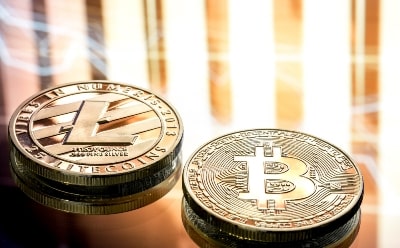Does Bitcoin Have Gas Fees?

Among the many questions that have been asked about the currency is whether or not it has gas fees. While it may sound like something that is not a big deal, the truth is that the currency does have some gas fees. But the good news is that they are not the same kind of fees that you would pay if you used a credit card.
Ether transactions have gas fees
Unlike most cryptocurrencies, the cost of ETH transactions are not free. Gas fees are required in order to execute Ether transactions on the Ethereum platform. This fee is a way to ensure that transactions are accepted by the network. It also helps incentivize miners to perform transaction validation.
Gas prices vary according to the complexity and type of a transaction. The price is usually chosen by the user. It’s important to understand how gas is priced. When the network is congested, the gas prices can be very expensive. This is a problem that can cause delays in transaction processing.
The gas price is determined by the supply and demand of the transactional capacity of the network at the time of execution. The lowest gas prices are between 9:30 AM and 1:30 PM (IST) on weekdays.
Ethereum has lower gas fees than bitcoin
Unlike Bitcoin, which is often regarded as a store of value, Ethereum aims to be a decentralized world computer. This means that users can build their own apps and develop self-executing protocols on the platform. This means that there are a lot of different ways to use the platform, and no one really knows which ones.
As more and more people start using the platform, the demand for transactions on the network rises. This means that more work needs to be done, and gas fees tend to rise. Luckily, the Ethereum network has implemented some strategies to help reduce these costs. These include layer 2 scaling solutions.
These solutions handle the transaction separately from the Ethereum main chain, and thus have different implementations. They can save users a significant amount of gas.
Ethereum’s gas price is not selected by the network
Despite being a decentralized technology, the Ethereum network needs to charge gas fees. These fees are used to compensate miners for their work on the network. This provides a reasonable incentive to maintain and support the network. It also helps protect the network from DDoS attacks.
The price of a gas unit is usually calculated in Gwei, which is a fractional unit of ETH. The minimum amount of gas that an operation on the Ethereum network will use is 21,000 units.
Generally, a transaction will cost more when the demand for gas is high and less when the demand for gas is low. This is because more work is required to interact with the Ethereum network. However, the average cost of a transaction can vary throughout the day.
Ethereum is on a PoS chain
Until now, the main network of the Ethereum blockchain was based on proof-of-work (PoW). This system requires computers to agree on transactions, which is known as consensus. To be able to process the network’s transactions, miners must invest in specialized equipment that consumes a lot of energy.
The move to PoS enables the network to reduce its energy consumption to nearly zero. This will significantly improve its security and increase its scalability. The transition is expected to save 99% of the energy that the network used in its previous PoW model.
A new network staking model will replace the mining process. Staking enables individuals to participate in the security of the network. They can earn additional coins in proportion to the amount they stake.
Ethereum is making them more affordable
Typically, the price of Ethereum gas fluctuates with the supply and demand of the network’s miners. This is done through an auction system. The highest bidder gets the most desirable processing time. If the gas price does not meet the standard, the transaction is declined.
The price of gas on the ETH network varies based on the day and hour. For example, gas prices are generally lower on weekends and during off-peak hours. If you plan to make a large transaction, you might want to take advantage of these times. In some cases, gas prices can be as low as one gwei! Another thing to consider is the cost of performing a simple transfer. Usually, sending a single ETH token costs 21,000 gas. You can also pay a bit more for complicated transfers.

